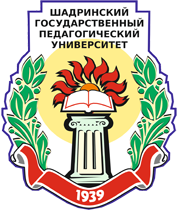Механизм управления Францией в период наивысшего подъема Великой французской революции (1792-1794 гг.)
The mechanism of France governance during the period of the highest rise of the French Revolution (1792-1794)
Аннотация
В статье раскрыты алгоритмы управления Францией в период наивысшего подъема Великой французской революции (1792 – 1794 гг.), через призму взаимодействия Конвента (парламента), Парижской Коммуны (муниципального учреждения) и политических клубов (прежде всего, Якобинского), а также психологические особенности и роль революционных лидеров – Ж. Дантона и М. Робеспьера механизм управления Парижем и Францией в наиболее радикальный период Великой французской революции. Решения государственного значения принимались на голосовании в Конвенте, однако его члены подвергались непосредственному давлению активистов Парижской Коммуны. Несмотря на свою роль, Коммуна не была «диктатором» революции, так как ее руководящие члены входили в состав Якобинского клуба, вместе со многими лидерами Конвента. Таким образом, проекты постановлений изначально вырабатывались внутри в клубе и лишь затем, при помощи Коммуны проводились через Конвент, а далее проецировались ниже – в департаменты Франции.
В статье также отмечено участие английских спецслужб во французских событиях революционного периода.
Abstract: The article reveals the mechanisms of governance of France during the period of the highest rise of the French Revolution (1792 – 1794), through the prism of the interaction of the Convention (parliament), the Paris Commune (municipal institution) and political clubs (primarily Jacobin), as well as the psychological characteristics and role of revolutionary leaders – J. Danton and M. Robespierre. the mechanism of governance of Paris and France in the most radical period of the French Revolution. Decisions of national importance were made at the vote in the Convention, but its members were subjected to direct pressure from the militants of the Paris Commune. Despite its role, the Commune was not the "dictator" of the revolution, as its leading members were part of the Jacobin Club, along with many of the leaders of the Convention. Thus, draft resolutions were initially developed internally in the club and only then, with the help of the Commune, were carried out through the Convention, and then projected below - into the departments of France.
The article also notes the participation of British special services in the French events of the revolutionary period.






